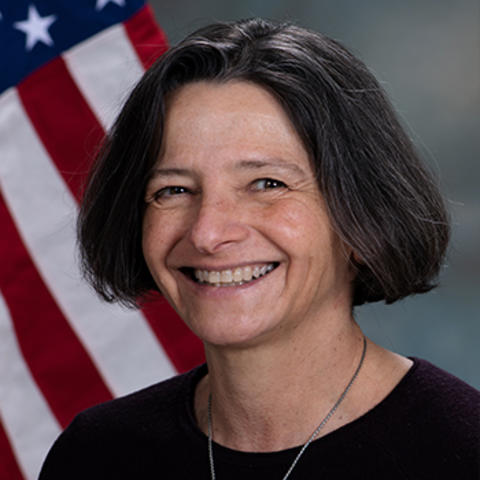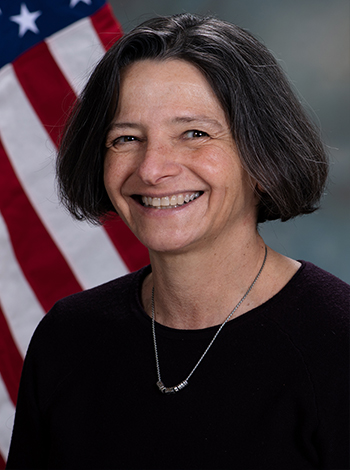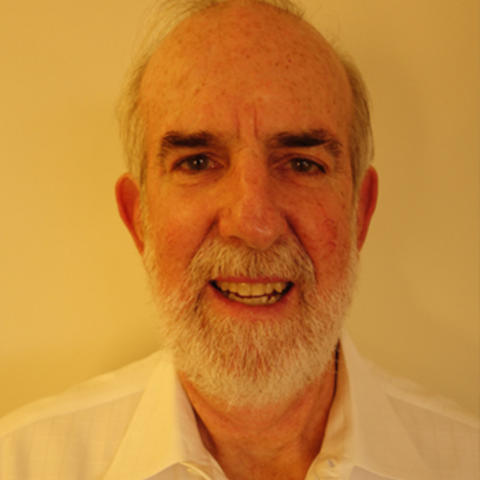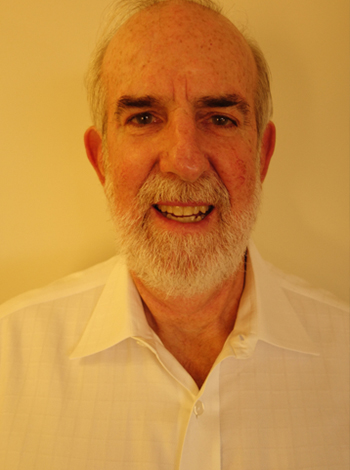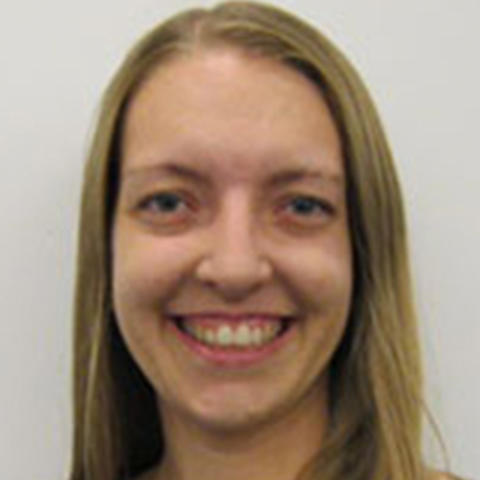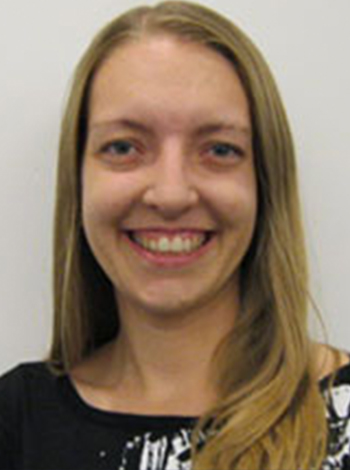Faculty
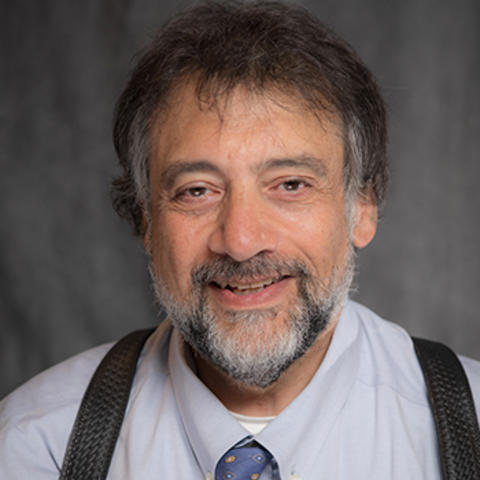
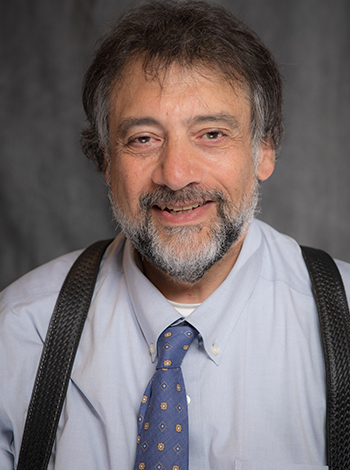
Bio
Dr. Rittberg’s education includes a BS with distinction in Chemistry from the University of Wisconsin, Milwaukee; an MD from the University of Wisconsin; and a psychiatry residency at the University of Minnesota. He was elected to memberships in the Phi Beta Kappa and Alpha Omega Alpha honor societies.
His research has been on novel antidepressants, vagus nerve stimulation for depression, deep brain stimulation for depression, and ketamine-like drugs. He has taught residents and medical students for almost 4 decades and specializes in psychopharmacology. His main area of interest is treatment-resistant depression.
Expertise
- Psychiatry and mood disorders
Research Summary
Somatic treatment of Mood Disorders Clinical trials of novel agents and Vagus Nerve Stimulation


Bio
I am a child psychiatrist at the Masonic Institute for the Developing Brain. I am a board-certified pediatrician and psychiatrist and am thrilled to have the opportunity to provide care to the children of Minnesota. I earned my MD and MPH from the University of Florida Medical School, and my undergraduate degree in biology is also from the University of Florida. Most recently, I was a Post Pediatric Portal Fellow at Case Western Reserve University/University Hospitals of Cleveland in Ohio. I completed my pediatric residency at Hurley Children’s Hospital/Michigan State University in Flint, MI, and a pediatric internship at the University of Florida Health Shands Children’s Hospital in Gainesville.
In 2017, I was awarded for Outstanding Achievement in Medical Student Education, and in 2016, I was initiated into the Gold Humanism Honor Society and received the United States Health Service Excellence in Public Health Award.
While I see children of all ages, I have a particular interest in early childhood mental health, anxiety disorders, and patients who identify as LGBTQ.
Administrative Assistant
(for academic support only)
Teneshia Collins
coll1148@umn.edu
Education
Fellowships, Residencies, and Visiting Engagements
Licensures and Certifications
Honors and Recognition
Professional Memberships
Selected Presentations


Bio
I received my BS in Psychology from Pennsylvania State University. I completed my master's and PhD in Psychobiology and Neuroscience from Florida State University. I further completed my postdoctoral fellowship in Behavioral Pharmacology here at the University of Minnesota. I am an Emeritus Professor of Psychology and Neuroscience and my research is focused on factors that underlie drug and food addiction, such as genetic differences, impulsivity, and hormonal influences. As Director of a recent P50 Center grant, I conduct translational research with animal and human subjects on sex differences, stimulant addiction and novel treatments. Currently, I am developing animal models of novel self-initiated and -maintained long-term treatments for addiction with the translational goal of having addicted drug users manage their treatment and recovery over long periods of time. I have over 200 publications, 11,000 citations, and an h-index of 58.I have been awarded the University of Minnesota President's and Medical School's Neuroscience Initiative Award, every year since 2005. I am active in national and local community events including Brain Awareness Week, the Winter Conference on Brain Research Community Outreach and at the Minnesota State Fair's Neuroscience booth.
Expertise
- Behavioral pharmacology and biological factors in addiction
- Environmental factors in addiction
- Novel behaviors and pharmacological treatment for drug abuse
Research Summary
The goal of my research is to develop behavioral and pharmacological methods for reducing and preventing drug abuse. In recent work with graduate students and postdocs, we examined the influence of individual differences such as impulsivity, sweet preference, sex/hormonal factors, and genetic factors that maintain drug addiction. A current interest is to understand treatment failure in human drug addicts, as success of treatments is no higher than self-quit methods. Our hypothesis is that treatments fail because craving incubates over long periods after treatment ends. We use self-initiated, self-maintained, long-term treatments, such as physical exercise, to block incubation of craving for weeks to months. We also study another aspect of incubated craving, multiply-triggered-relapse (MTR). After several weeks of forced abstinence we found that in addition to the previously-used drug, multiple cues in the environment (e.g., other drugs of abuse, common drugs such as caffeine and nicotine, and environmental cues) trigger relapse. Incubation of craving and MTR are the targets we are currently studying for treatment development. We are testing self-initiated, long-lasting and self-maintained treatments, such as voluntary exercise and social reward that, alone and/or together, are self-motivated and self-maintained long-term self-treatments for reducing incubation of craving and MTR. We are working with clinical addiction investigators and exercise physiologists to translate these treatment strategies to humans.
Education
Fellowships, Residencies, and Visiting Engagements
Contact
Address
625-C Diehl H505 Essex St SE
Minneapolis, MN 55455
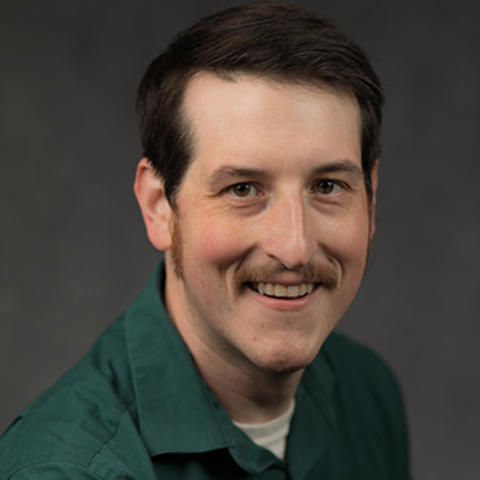
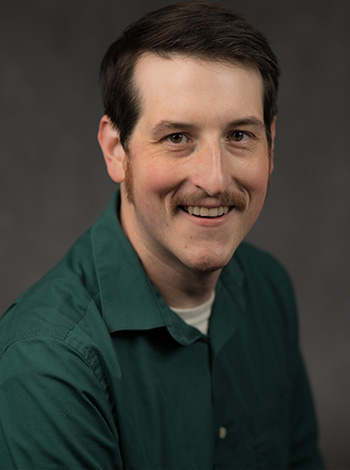
Bio
I completed a B.S. in Brain, Behavior, and Cognitive Science at the University of Michigan, where I conducted an honors thesis using functional MRI to study word list learning with Dr. Scott A. Langenecker. I completed my Ph.D. in Neuroscience at the University of Minnesota with Dr. Cheryl A. Olman. My doctoral work used functional MRI and behavioral psychophysics to examine how early visual processing (e.g., contrast perception) is affected by psychosis. Next, I worked as a post-doctoral research associate with Dr. Scott O. Murray in the Department of Psychology at the University of Washington. My work examined how low-level vision (e.g. motion perception) is affected by autism spectrum disorders, using methods such as functional MRI, MR spectroscopy, and EEG.
I am an Assistant Professor in the Department of Psychiatry & Behavioral Sciences. My research focuses on understanding how visual perception is affected by different psychiatric and neurological conditions. I am the Primary Investigator for an NIMH K01-funded study using EEG and MR spectroscopy to understand early visual perception in schizophrenia. I am also involved in a number of other projects focused on visual perception in clinical populations including psychosis spectrum disorders and visual snow syndrome. Within the department, I am Co-Chair of the Grand Rounds Committee, the Chairperson of a Junior Faculty Peer Mentorship Group, and Co-Director of the Ambulatory Research Center Psychophysiology Laboratory.
Expertise
- Schizophrenia
Administrative Assistant
(for academic support only)
Teneshia Collins
coll1148@umn.edu
Research Summary
Dr. Schallmo's interests include: Disrupted perception in psychosis and autism spectrum disorders (ASD) The role of different neurotransmitters (e.g., GABA, glutamate) in psychosis and ASD Visual neuroscience as a tool to examine specific hypotheses about the neural mechanisms of psychiatric disorders Combining methods (e.g., functional MRI, EEG, MR spectroscopy, visual psychophysics, pharmacology) to study a single research question in human subjects
Education
Honors and Recognition
Professional Memberships
Selected Publications
Selected Presentations
Contact
Address
Department of Psychiatry & Behavioral Sciences, F282/2A West Building, 2450 Riverside Avenue South, Minneapolis, MN 55454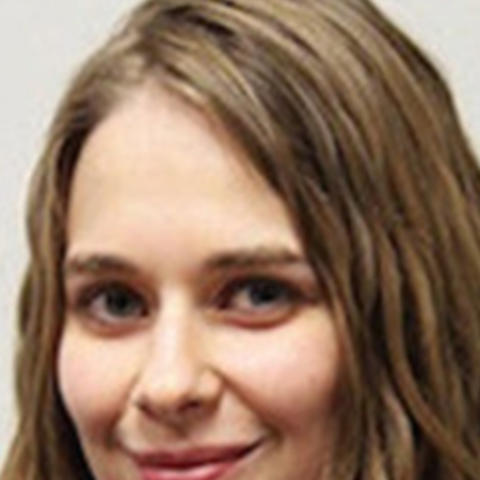
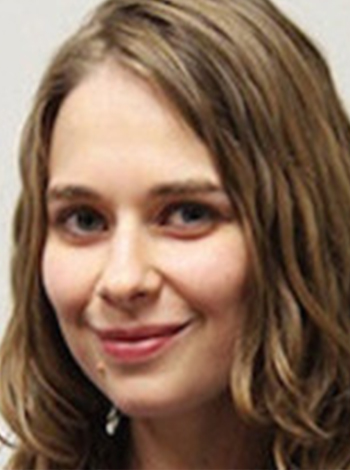
Bio
I received my BA from the University of Chicago. I completed medical school here at the University of Minnesota. I completed my psychiatry residency in general psychiatry from the University of Iowa Hospitals and Clinics, and my fellowship in child and adolescent psychiatry from Boston Children's Hospital (Harvard Medical School), Boston, where I was Chief Fellow. I am a child and adolescent psychiatrist with a focus on consultation-liaison psychiatry, mood and anxiety disorders, and developing new clinical programs for children with coexisting physical and psychiatric illnesses. Within the department, I am a member of the Advocacy Committee.
Administrative Assistant
(for academic support only)
Shelly Slominski
slomi001@umn.edu
In the Media
- 2022: Featured in this article titled, "Interprofessional collaboration at the U aims to improve mental health treatment for children and adolescents".
Education
Fellowships, Residencies, and Visiting Engagements
Licensures and Certifications
Honors and Recognition
Professional Memberships
Selected Publications
Selected Presentations
Contact
Address
Masonic Institute for the Developing Brain, 2025 E River Pkwy, Minneapolis, MN 55414

Bio
I am a Clinical Psychologist on faculty in the Department of Psychiatry and Behavioral Sciences and adjunct faculty in the Department of Psychology at the University of Minnesota. My education includes a Master’s degree in cognitive psychology from the Universität Regensburg, Germany, a PhD in clinical science from Vanderbilt University, TN, and a postdoctoral fellowship at the University of Pennsylvania & the A.T. Beck Institute, PA. Prior to joining the University of Minnesota, I worked in a variety of healthcare settings including the University of Illinois - Chicago, the practice group RICBT & OneCBT, and Allina Health.
In the Department of Psychiatry and Behavioral Sciences, I direct Psychology Education, co-chair the Education Council, oversee clinical psychology training, and direct CBT training for the psychiatry residency program. My education mission centers around empirically-validated team-based patient care, interprofessional learning, and mentorship of trainees across disciplines. I also serve as a certified Crucial Conversations Trainer leading workshops on the art of holding critical conversations well.
Expertise
- Unipolar and bipolar mood disorders
- Multidisciplinary interventions for mood disorders
- Cognitive Behavioral Therapy (CBT)
Administrative Assistant
(for academic support only)
Molly Jokimaki
jokim004@umn.edu
In the Media
- 2023: Quoted in this Minnesota Daily article titled, “Fareed: The loneliness epidemic: a silent crisis.”
- 2023: Featured in this article titled, “Celebrating the many ways that psychologists help us.”
- 2023: Featured in this Minnesota Daily article titled, “Could the Sunshine Protection Act prevent the winter blues?
- 2022: Featured in this Woman’s World article titled, “Expert Advice: How Can I Feel Less Lonely During the Holidays?
- 2022: Featured in this article titled, “Treating seasonal affective disorder as winter looms.
- 2022: Quoted in this Consumer Reports article titled, "Find the Right Therapist for You".
- 2022: Featured in this Detroit Lakes Tribune article titled, "Health Fusion: Don't let SAD drive your bus".
- 2021: Helps us get through the winter blues in this Medical School video titled, "Ask a U of M Expert: Tips for coping with SAD".
- 2021: Featured in this article titled, "5 Tips for Choosing a Psychotherapist".
- 2020: Interviewed by WCCO radio in a piece titled, Mental health experts warn that the holiday season could be "the hardest part" of the pandemic, by KSTP TV, Expert offers tips for those experiencing loneliness during the pandemic, holidays, and by Fox21, Mental Health Experts Concerned About Loneliness This Holiday Season.
Research Summary
As a scientist-practitioner, I dedicate my career to translating scientific research into best practices in mental healthcare. My research interest is in the development and implementation of evidence-based interventions for mood disorders, specifically the integration of Cognitive Behavioral Therapy (CBT) with emerging biological interventions. Currently, I serve as site PI for a PCORI-funded empirical study comparing novel depression interventions.
Teaching Summary
I am passionate about training, teaching, and mentoring psychology graduate students, psychiatry residents, postdoctoral fellows, and junior faculty in the evaluation and evidence based team-based intervention for mood disorders and in professional development.
Clinical Summary
I am clinically licensed in Minnesota and certified in CBT by the Academy of Cognitive and Behavioral Therapies. I provide care and consultation in multidisciplinary specialty clinics for Treatment Resistant Depression (TRD) and Early-Stage Mood Disorders (ESMD). My clinical practice is rooted in scientific research and integrates CBT with modern empirically- based approaches including Behavioral Activation (BA) and Acceptance and Commitment Therapy (ACT).
Education
Fellowships, Residencies, and Visiting Engagements
Licensures and Certifications
Honors and Recognition
Professional Memberships
Languages
Selected Publications
Selected Presentations
Contact
Address
Department of Psychiatry & Behavioral Sciences, F282/2A West Building, 2450 Riverside Avenue South, Minneapolis, MN 55454

Bio
I am an Assistant Professor in the Department of Psychiatry & Behavioral Sciences, Child and Adolescent Mental Health Division, and Masonic Institute for the Developing Brain, as well as an Institute for Translational Neuroscience Scholar. I earned my PhD (Clinical Psychology) from the University of Pittsburgh, with secondary training from Carnegie Mellon University (Cognitive Neuroscience), focusing on the intersection of developmental cognitive neuroscience, mental health research, and computational methods. I trained at Massachusetts General Hospital/Harvard Medical School for my predoctoral clinical internship and postdoctoral fellowship, with an emphasis on research and treatment of adolescents with substance use disorders.
Research in my lab aims to understand normative brain development and the emergence of mental health and substance use disorders during adolescence, integrating techniques from developmental cognitive neuroscience, computational methods, and psychopathology research. We are also engaged in methodological work aiming to evaluate and improve the reproducibility and ultimately, clinical and policy utility, of large-scale fMRI and behavioral assessment research in neurodevelopmental studies.
Administrative Assistant
(for academic support only)
Shelly Slominski
slomi001@umn.edu
In the Media
- 2024: Research featured in this New York Times article, titled, “Teen Drug and Alcohol Use Linked to Mental Health Distress.”
- 2024: Featured in this Medical School article titled, “High school students who report using alcohol, cannabis or nicotine at higher risk for suicidal thoughts and other mental health disorders”
- 2023: Featured in this article titled, "Is Your 18-Year-Old Really 'Mature'? New Brain Study Has Answers".
- 2023: The focus of this article titled, “Integrating his clinical work into his research an exciting prospect for new faculty member.”
- 2022: Invited on the Flux Society [Developmental Cognitive Neuroscience]: Sensitive Periods Podcast.
- 2022: Invited on the Organization for Human Brain Mapping (OHBM) Neurosalience Podcast
- 2022: Featured on KCBS, San Francisco. Click here for more information.
- 2022: Research featured on Psychology Today, Click here for the article.
- 2021: Featured on WHYY, National Public Radio (NPR)-Affiliate, Philadelphia, Click here for more information.
Education
Fellowships, Residencies, and Visiting Engagements
Honors and Recognition
Professional Memberships
Selected Publications
Contact
Address
Department of Psychiatry & Behavioral Sciences, F282/2A West Building, 2450 Riverside Avenue South, Minneapolis, MN 55454

Bio
I received my BA in chemistry from the College of St.Catherine, MN, and completed medical school here at the University of Minnesota. I completed my residency in family practice from the University of Wisconsin, a residency in psychiatry, and a fellowship in addiction medicine from the University of Minnesota. I am an Associate Professor and addiction psychiatrist in the Department of Psychiatry & Behavioral Sciences. I am Program Director for the Addiction Medicine Fellowship which trains physicians of all specialties in addiction and co-occurring psychiatric disorders.
My research interests include substance abuse and related compulsive behaviors with co-morbid conditions, especially in women; medication development for substances of abuse, and healthcare professionals with substance user psychiatric disorders. I am also a co-investigator on the use of neuroimaging approaches to identify circuit abnormalities in addiction. Pharmacotherapies for the treatment of cocaine use disorder have also been a focus of research. I have also given grand rounds presentations nationwide and have presented both nationally and internationally at more than 70 conferences. I am board certified in both family practice and psychiatry and certified by the American Society of Addiction Medicine as a physician specialist in substance abuse and by the American Board of Psychiatry in addiction psychiatry. I was selected as a Top Doctor in Minneapolis-St. Paul Magazine in 2014, 2016, 2017, 2018, 2019, and 2021.
Expertise
- Eating disorders
- Substance use disorders
- Addictive disorders
Administrative Assistant
(for academic support only)
Natasha Hampton-Anderson
nhampton@umn.edu
In the Media
- 2023: Featured in this article titled, “Celebrating the many ways that psychologists help us”.
- 2022: Shares her expertise in this Medical School article titled, “Talking addiction during the holidays with U of M”.
- 2022: The focus of this article titled, “Trip to Africa teaches faculty member about the impact of culture on mental health and substance abuse”.
- 2022: Featured in this Faribault Daily News article titled, “University of Minnesota expert explains Dry January”.
- 2021: Interviewed for this article in Self Magazine titled, “6 Signs Your Relationship with Alcohol May Not be Healthy”.
Research Summary
Dr. Specker's research is focused around substance abuse and related compulsive behaviors with co-morbid conditions, especially in women; medication development for substances of abuse; and Health Care Professionals with substance user psychiatric disorders.
Education
Fellowships, Residencies, and Visiting Engagements
Licensures and Certifications
Honors and Recognition
Professional Memberships
Selected Publications
Selected Presentations
Contact
Address
Department of Psychiatry & Behavioral Sciences, F282/2A West Building, 2450 Riverside Avenue South, Minneapolis, MN 55454

Bio
I received my BA in Mathematics, Physics, and Psychology from Concordia College in Moorhead, MN. I completed my PhD in Clinical Psychology here at the University of Minnesota. I am an adult psychologist and my primary research focus is to understand how genetic risks for schizophrenia and bipolar disorder are expressed in the functions of the brain. I also conduct studies of families affected by schizophrenia and bipolar disorder to understand the ways in which individuals affected by these conditions differ from biological relatives who may carry genetic vulnerability for the conditions but do not develop the disorders. In addition, I study military-related traumatic brain injury and post-traumatic stress disorder in a search for brain-based measures that differentiate the two conditions and may help guide treatment decisions for individuals who have been exposed to traumatic explosive blast events in combat. I have given 18 grand rounds presentations nationwide, and have presented nationally and internationally at more than 170 conferences.
I am a consulting editor for the Journal of Abnormal Psychology and also work as a trainer for the Minneapolis VA's Psychology Service Training Program. Within the department, I am a graduate student advisor for the Clinical Science and Psychopathology Research Program and supervise clinical training of psychology graduate students, and post-doctoral psychologists for licensure.
Expertise
- Clinical & cognitive assessment
- EEG collection and analysis
Research Summary
Dr. Sponheim's primary research focus is to understand how genetic risk for schizophrenia and bipolar disorder are expressed in the functions of the brain. He uses recordings of brain electrical activity (EEG), magnetic resonance imaging (MRI) measures of brain function and structure, cognitive assessments, and questionnaire and interview-based assessments of symptoms to map the expression of genetic vulnerability. Dr. Sponheim carries out studies of families affected by schizophrenia and bipolar disorder to understand the ways in which individuals affected by schizophrenia and bipolar disorder differ from biological relatives may carry genetic vulnerability for the conditions but do not develop the mental disorder. The discovery of measures that clearly identify either genetic vulnerability or future development of a severe mental disorder will allow early intervention and possible prevention of these conditions before they impair a person's life. Dr. Sponheim also studies military-related traumatic brain injury and post-traumatic stress disorder in a search for brain-based measures that differentiate the two conditions and may help guide treatment decisions for individuals who have been exposed to traumatic explosive blast events in combat.
Clinical Summary
Schizophrenia, Bipolar Disorder; Post-traumatic Stress Disorder; Empirically-Validated Recovery Interventions for Severe and Persistent Mental Disorders
